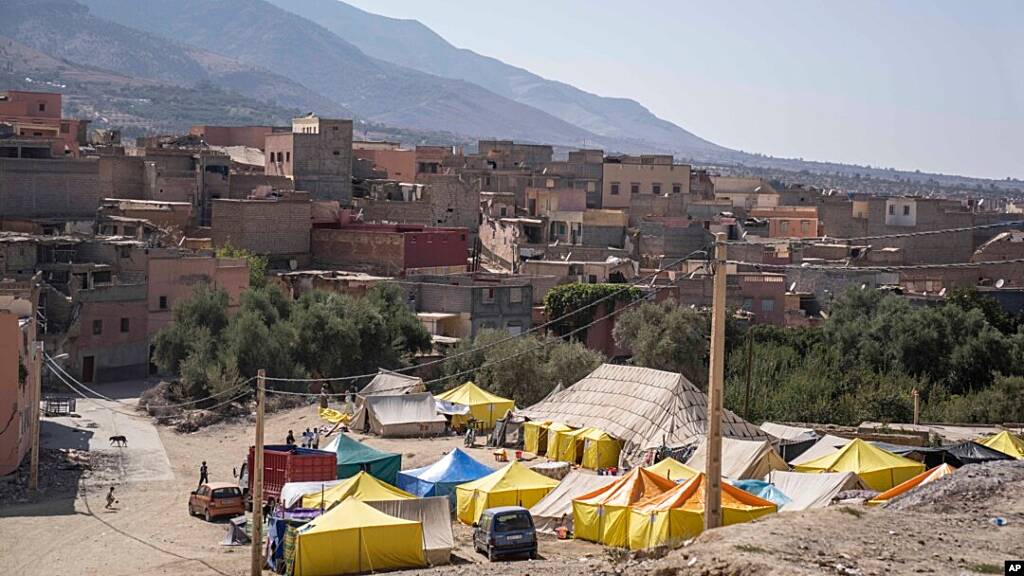The forthcoming IMF and World Bank meetings are taking place in Marrakech, and as the world’s financial elites assemble there, a striking contrast between the city’s well-kept exterior and the desperate circumstances faced by earthquake victims an hour away becomes apparent.
Three thousand people were killed in last month’s catastrophic earthquake, which also left thousands of others homeless and penniless in the High Atlas highlands, where the destruction was most severe. These survivors are currently reliant on government assistance as they work to rebuild their destroyed lives while living in tents with limited access to necessities.
In Marrakech itself, close to the conference venue, extensive efforts have been made to restore the city to its former glory. The old city wall has been repaired, a fallen minaret concealed, and the streets cleared of rubble. Lush lawns have been manicured, and flowers have been planted to present a picturesque image to the world.
However, this stark contrast highlights the longstanding inequalities within the country, where advanced infrastructure and industry coexist with rural areas lacking basic services, including sewage systems. While a single night’s stay at the historic La Mamounia hotel during the IMF meeting costs a staggering 20,000 Moroccan dirhams ($1,900), the average annual GDP per capita for those residing in the quake-affected region is a mere $2,000.
Omar Ait Ougadir, who lost his two sons in the earthquake, described the moment the quake struck as “like a bomb.” With most houses in Imi N’Tala either destroyed or severely damaged, and a landslide blocking the only road for a week, the villagers face immense challenges. They must share just four unconnected toilet cubicles, and their living conditions are dire.
The government has pledged compensation for the quake victims, offering a monthly stipend of $250 per household and financial assistance for rebuilding homes. Relief efforts also include distributing tents and blankets, setting up field hospitals, and removing rubble. Furthermore, the government plans to invest $12 billion in reconstruction and infrastructure over five years in the earthquake-ravaged region.
Interestingly, the IMF approved a $1.32 billion loan just last week, a request made prior to the earthquake, in a bid to fortify the region against climate-related disasters. As the international financial community descends on Marrakech for these crucial meetings, the striking disparities between the city’s opulence and the plight of the earthquake victims serve as a poignant reminder of the challenges facing Morocco in its pursuit of equitable development.
